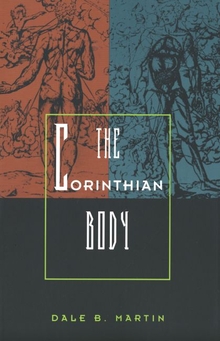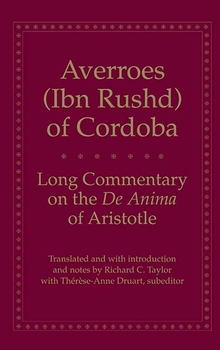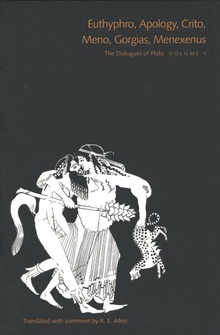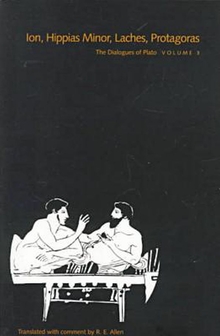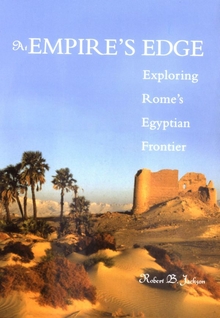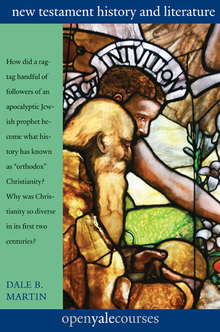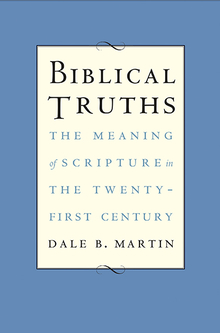The Corinthian Body
WARNING
You are viewing an older version of the Yalebooks website. Please visit out new website with more updated information and a better user experience: https://www.yalebooks.com
Dale B. Martin
According to Martin, most Corinthian Christians and Paul himself saw the body as an entity that could be permeated by different pollutions. Other members of the Corinthian church, however, viewed the body as hierarchical—as a microcosm of the universe—and were not particularly concerned about body boundaries or pollution. These differing views of the human body (and also of the church as the body of Christ) led to differing opinions on a variety of subjects—including the role of rhetoric and philosophy in a hierarchical society, the eating of meat sacrificed to idols, prostitution, sexual desire and marriage, and the resurrection of the body. Martin explores these conflicts by drawing on ancient medical writings, modern anthropological approaches, and feminist and ideological methods of critical analysis. He shows how Paul's understanding of the body prevailed among the less well-educated inhabitants of the Roman Empire, who occupied relatively low socioeconomic levels. The minority who espoused the ideas of hierarchy, on the other hand, were usually of higher social status and were better educated. And it was along these same class lines, Martin argues, that the Corinthian church itself was divided.
"This book breaks new and important ground, opening up brilliant access to a number of puzzling texts in 1 Corinthians that have vexed interpreters for centuries."—S. Scott Bartchy, University of California, Los Angeles
"A bold and provocative piece of scholarship and interpretation. Martin picks up some of the most interesting suggestions of recent scholarship and follows them into an imaginative but responsible engagement with primary evidence from the ancient world."—Wayne A. Meeks, Yale University
"A brilliant expository study of the body in Corinth. . . . There are riches here on every page, and one does not have to be convinced by every detail of the argument to come away provoked, fascinated and exhilarated by this brilliantly composed volume."—John M. G. Barclay, Expository Times
"For anyone inclined to turn to Paul for instant guidance, there is much in Dale Martin's book to indicate a long pause for reflection."—J. Leslie Houlden, Times Literary Supplement
"This book is well worth reading for anyone interested in a sophisticated and nuanced analysis of 1 Corinthians."—Thomas H. Tobin, Theological Studies
"This is a striking and original book which should stimulate and provoke its readers."—David Horrell, Journal of Theological Studies
"A very learned, insightful, provocative, and skillfully argued book. . . . Martin's book is an invaluable contribution to the study of 1 Corinthians, and, because of its distinctive focus on the ideologies of the body, it offers an indispensable hermeneutics of suspicion for the identification of similar sociocultural realities that are demonically operative in our contemporary world. Professors of biblical, ethical, and religious studies, seminary students, and pastors would benefit greatly from reading and rereading this book."—Herman C. Waetjen, Theology Today
"Dale Martin's general methodological approach lies at the cutting edge of studies in religion. . . . His intellect is of a sort that is able to assimilate this critical thinking (sometimes broadly called 'theory') and make excellent us of it in producing serious, convincing interpretive advances that ought to be persuasive by and large even to those who are not schooled in the very interdisciplinary discourses that Martin has assimilated. . . . The book represents not only a major contribution to knowledge but also an exemplary instance of method that will serve as the focal point for future productions of knowledge."—O. Larry Yarbrough, Journal of Biblical Literature
"Dale Martin of Duke University has produced a fascinating and engaging interpretation of Paul's first letter to the Corinthians as viewed through an ideological analysis of ancient Greco-Roman theoretical constructions of the body, both individual and social (the two regarded as templates of each other). . . . His sophisticated and subtle analysis of how the apostle's social teachings were based on his underlying acceptance of ancient ideologies (or scraps of ideologies) of the body provides a most useful corrective to recent, overly simplistic attempts to brand Paul either a champion of liberation or a single-minded propagator of patriarchal privilege. As Martin valuably demonstrates and richly document, 'the situation is more complex than either position allows.'"—Margaret M. Mitchell, Journal of Religion
"This book is a milestone in Pauline studies. It demonstrates that a consistent application of the theory of socially constructed knowledge is possible and fruitful for the interpretation of all of Paul's arguments, not simply those which explicitly mention social class. It is a 'must read' for anyone engaged in the task of moving from Pauline texts to contemporary moral reflection."—David E. Fredrickson, Word & World
Publication Date: September 10, 1999

